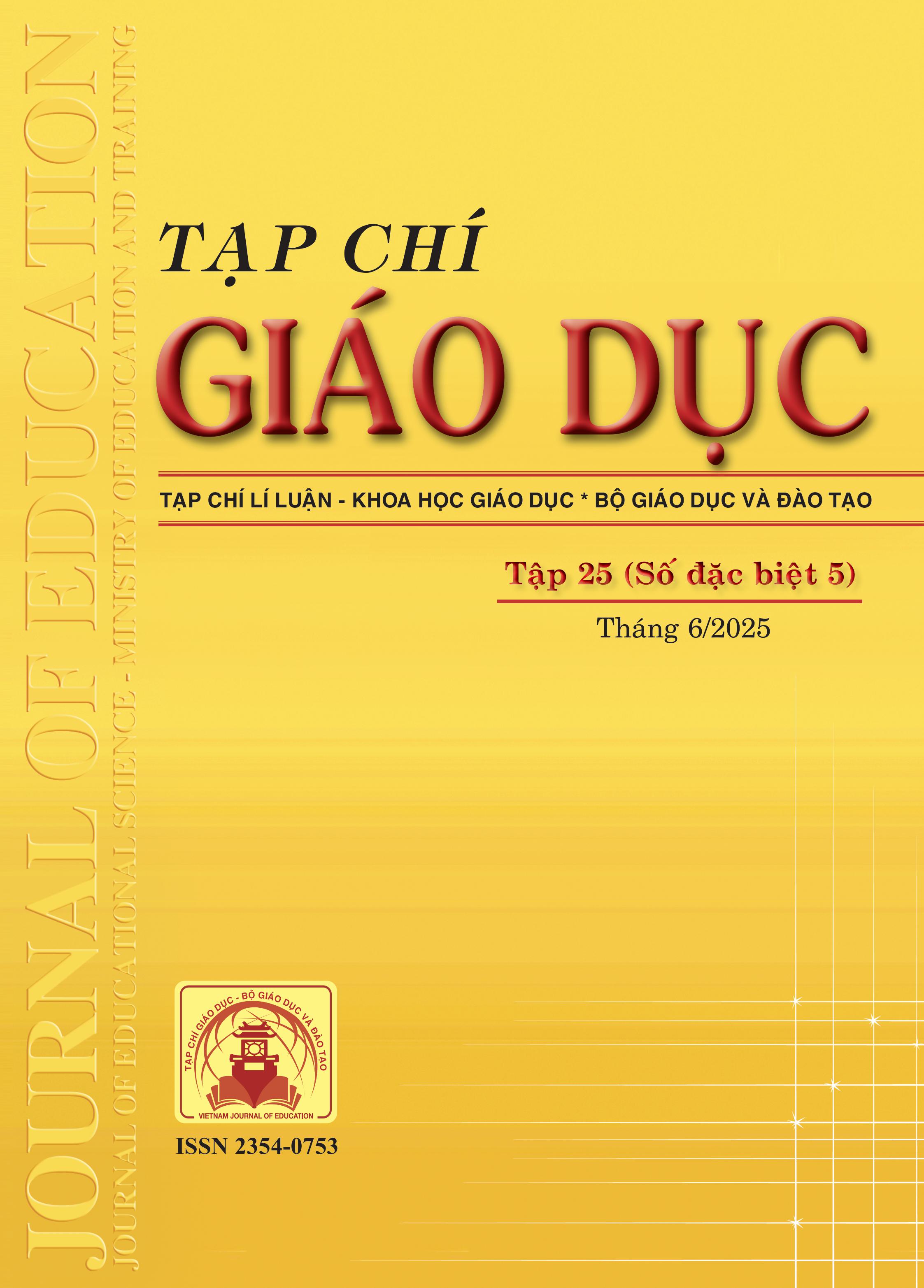Yếu tố chủ quan ảnh hưởng đến uy tín giảng viên trẻ ở các trường sĩ quan Quân đội hiện nay
Tóm tắt
Prestige is a social psychological phenomenon formed and developed on the basis of a system of professional qualities and abilities, along with the social values of individuals through practical activities; creating influence, attraction, appeal to others and being trusted, acknowledged, and trusted by everyone voluntarily. For lecturers, especially young lecturers at military officer schools, the success or failure in their professional activities depends largely on their own prestige. The process of building prestige for young lecturers today inevitably and naturally depends on objective and subjective factors; in which subjective factors play a decisive role. Therefore, the content of the article focuses on clarifying the necessity of identifying and interpreting subjective factors affecting the prestige of young lecturers at military officer schools such as: Interest in military pedagogy, positivity, will in performing tasks, typical personality traits and experience, life capital. From there, it helps Party committees and commanders at all levels apply solutions, contributing to improving the prestige and quality of young lecturers in current military officer schools.
Tài liệu tham khảo
Ban Bí thư Trung ương Đảng (2011). Hồ Chí Minh toàn tập (Tập 3). NXB Chính trị Quốc gia - Sự thật.
Bùi Tuấn Anh (2016). Cơ sở tâm lí học phát triển tư duy sáng tạo của học viên sĩ quan trong nhà trường quân đội hiện nay. NXB Quân đội Nhân dân.
Covaliop, A. G. (1971). Tâm lí học cá nhân. NXB Giáo dục.
Dương Hải Hưng (2015). Uy tín của cán bộ quản lí văn hóa cấp xã ở huyện Kim Động, Hưng Yên. Tạp chí Tâm lí học xã hội, 6, 108-112.
Erkmen, T., & Esen, E. (2019). The effects of self-esteem and locus of control on self reported personal reputation. Gurukul Business Review (GBR), 15, 12-23.
Hoàng Anh Phước (2004). Các yếu tố ảnh hưởng đến việc hình thành và nâng cao uy tín chuyên môn của giảng viên Trường Đại học Sư phạm Hà Nội. Tạp chí Tâm lí học, 11, 55-63.
Horwitz, S. K. (2023). The impact of personal reputation on leader emergence in autonomous work teams: theoretical considerations for future research. European Journal of Management Studies, 28, 23-36.
Martocchio, J. J. (2007). Research in personnel and human resources management. Emerald Publishing Limited.
Nguyễn Quang Uẩn (2010). Tuyển tập nghiên cứu về Tâm lí - Giáo dục. NXB Đại học Sư phạm.
Nguyễn Thị Tình (2010). Tính tích cực giảng dạy của giảng viên đại học. NXB Từ điển Bách khoa.
Nguyễn Văn Công (2013). Kĩ năng dạy học các môn khoa học xã hội và nhân văn của giảng viên ở các trường sĩ quan trong Quân đội nhân dân Việt Nam. Luận án tiến sĩ Tâm lí học, Học viện Chính trị - Bộ Quốc phòng.
Nguyễn Văn Kỷ (2024). Xây dựng đội ngũ giảng viên - nhân tố quyết định chất lượng giáo dục, đào tạo ở các học viện, trường sĩ quan quân đội hiện nay. Tạp chí Nghệ thuật quân sự Việt Nam, 6, 112-114.
Phạm Quốc Huy, Phạm Văn Ngọc (2025). Vận dụng tư tưởng Hồ Chí Minh trong xây dựng đội ngũ giảng viên ở các học viện, trường sĩ quan quân đội hiện nay. Tạp chí Quản lí nhà nước, 349, 75-78.
Vũ Dũng (2008). Từ điển Tâm lí học. NXB Từ điển Bách khoa.
Vũ Thế Bình (2019). Tính tích cực giảng dạy của giảng viên khoa học xã hội và nhân văn ở các trường sĩ quan quân đội. Luận án tiến sĩ Tâm lí học, Học viện Chính trị - Bộ Quốc phòng.
Đã Xuất bản
Cách trích dẫn
Số
Chuyên mục
Giấy phép

Tác phẩm này được cấp phép theo Ghi nhận tác giả của Creative Commons Giấy phép quốc tế 4.0 .












